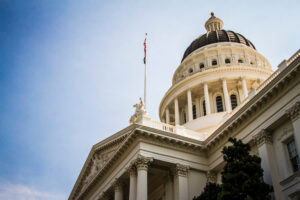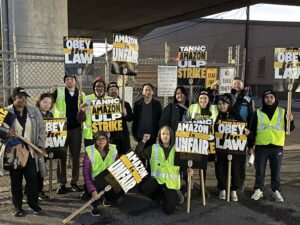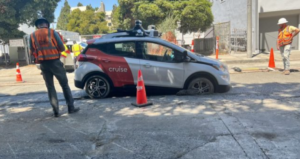COVID-19 update from the legal front
September 15, 2022While California still has thousands of new COVID cases each day, the law requiring special paid time-off for COVID is set to expire on September 30, 2022. This article discusses the state of the law with regard to paid COVID leave and the new vaccines.
Supplemental Paid Sick Leave
In California, employers of 26 employees or more are required to provide up to 80 hours of supplemental paid sick leave to full-time employees who are unable to work (or telework) because of symptoms of COVID-19 or a COVID-19 vaccine, for a vaccine appointment, because they are under a doctor’s isolation or quarantine order, or because they are caring for a family member experiencing any of these things.
This paid leave law (that expires September 30) provides 40 hours of paid leave for full-time employees who have symptoms of COVID-19, are caring for a family member with COVID-19, or have side effects from a COVID-19 vaccine. Part-timers scheduled to work regularly are entitled to leave equal to the number of hours that they regularly work in one week. Full-timers can receive an additional 40 hours of paid leave if they test positive for COVID-19 and cannot work remotely.
A Bill extending this leave beyond September 30, 2022, is on Governor Newsom’s desk. If he signs the extension, it will extend paid leave but impose new rules about the proof of a positive test that you have to provide. It would allow employers to require additional proof of a positive test and would deny additional leave to employees who refuse to submit their positive tests. Many observers expect Newsom to sign the extension.
Whatever happens at the State level, some cities have their own COVID leave ordinances. For example, starting October 1, the City and County of San Francisco and large private-sector employers (100 or more employees) who do any work in San Francisco must give up to 40 hours of COVID leave through the end of 2022. San Francisco workers will eligible for a new bank of up to 80 hours of COVID leave starting January 1, 2023.
Vaccine Coverage
The original COVID vaccines and boosters were intended to address COVID variants that have long ago been overtaken by new variants. The Food and Drug Administration and Centers for Disease Control have approved this new booster for anyone age 12 and up and the federal government is recommending that anyone who is vulnerable to COVID should get this new booster before the new wave of COVID that is expected this winter.
Like the earlier vaccinations, the federal government is paying the cost of the new vaccine. However, there is an administrative fee that averages around $40 to cover the cost of putting the vaccine into your arm. Your health plan—whether it’s a Teamster Plan or a Company Plan—should pay that administrative cost so if you get the new booster, it should not cost you anything.





